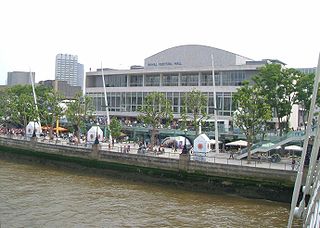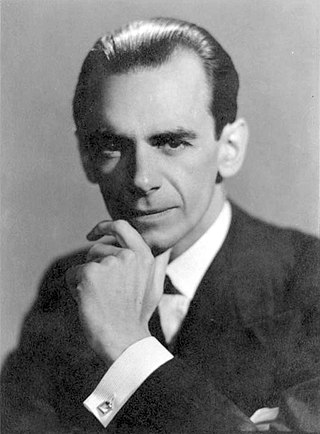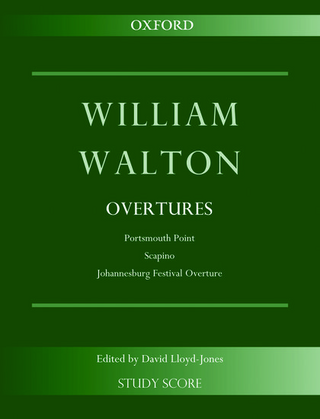Related Research Articles

Sir Simon Denis Rattle is a British conductor with German citizenship. He rose to international prominence during the 1980s and 1990s, while music director of the City of Birmingham Symphony Orchestra (1980–1998). Rattle was principal conductor of the Berlin Philharmonic from 2002 to 2018, and music director of the London Symphony Orchestra from 2017 to 2023. He has been chief conductor of Bavarian Radio Symphony Orchestra since September 2023. Among the world's leading conductors, in a 2015 Bachtrack poll, he was ranked by music critics as one of the world's best living conductors.
The BBC Symphony Orchestra is a British orchestra based in London. Founded in 1930, it was the first permanent salaried orchestra in London, and is the only one of the city's five major symphony orchestras not to be self-governing. The BBC SO is the principal broadcast orchestra of the British Broadcasting Corporation (BBC).

The London Symphony Orchestra (LSO) is a British symphony orchestra based in London. Founded in 1904, the LSO is the oldest of London's symphony orchestras. The LSO was created by a group of players who left Henry Wood's Queen's Hall Orchestra because of a new rule requiring players to give the orchestra their exclusive services. The LSO itself later introduced a similar rule for its members. From the outset the LSO was organised on co-operative lines, with all players sharing the profits at the end of each season. This practice continued for the orchestra's first four decades.

The London Philharmonic Orchestra (LPO) is a British orchestra based in London. One of five permanent symphony orchestras in London, the LPO was founded by the conductors Sir Thomas Beecham and Malcolm Sargent in 1932 as a rival to the existing London Symphony and BBC Symphony Orchestras.

The Philharmonia Orchestra is a British orchestra based in London. It was founded in 1945 by Walter Legge, a classical music record producer for EMI. Among the conductors who worked with the orchestra in its early years were Richard Strauss, Wilhelm Furtwängler and Arturo Toscanini; of the Philharmonia's younger conductors, the most important to its development was Herbert von Karajan who, though never formally chief conductor, was closely associated with the orchestra in the late 1940s and early 1950s. The Philharmonia became widely regarded as the finest of London's five symphony orchestras in its first two decades.

Sir Georg Solti was a Hungarian-British orchestral and operatic conductor, known for his appearances with opera companies in Munich, Frankfurt, and London, and as a long-serving music director of the Chicago Symphony Orchestra. Born in Budapest, he studied there with Béla Bartók, Leó Weiner, and Ernő Dohnányi. In the 1930s, he was a répétiteur at the Hungarian State Opera and worked at the Salzburg Festival for Arturo Toscanini. His career was interrupted by the rise of the Nazis' influence on Hungarian politics, and being of Jewish background, he fled the increasingly harsh Hungarian anti-Jewish laws in 1938. After conducting a season of Russian ballet in London at the Royal Opera House, he found refuge in Switzerland, where he remained during the Second World War. Prohibited from conducting there, he earned a living as a pianist.

The Royal Philharmonic Orchestra (RPO) is a British symphony orchestra based in London.

John Alexander Brymer OBE was an English clarinettist and saxophonist. The Times called him "the leading clarinettist of his generation, perhaps of the century". He was largely self-taught as a player and he performed as an amateur before being invited by Sir Thomas Beecham to join the Royal Philharmonic Orchestra in 1947. He remained with the orchestra until 1963, two years after Beecham's death.

Sir Colin Rex Davis was an English conductor, known for his association with the London Symphony Orchestra, having first conducted it in 1959. His repertoire was broad, but among the composers with whom he was particularly associated were Mozart, Berlioz, Elgar, Sibelius, Stravinsky and Tippett.

Sir Harold Malcolm Watts Sargent was an English conductor, organist and composer widely regarded as Britain's leading conductor of choral works. The musical ensembles with which he was associated included the Ballets Russes, the Huddersfield Choral Society, the Royal Choral Society, the D'Oyly Carte Opera Company, and the London Philharmonic, Hallé, Liverpool Philharmonic, BBC Symphony and Royal Philharmonic orchestras. Sargent was held in high esteem by choirs and instrumental soloists, but because of his high standards and a statement that he made in a 1936 interview disputing musicians' rights to tenure, his relationship with orchestral players was often uneasy. Despite this, he was co-founder of the London Philharmonic, was the first conductor of the Liverpool Philharmonic as a full-time ensemble, and played an important part in saving the Royal Philharmonic Orchestra from disbandment in the 1960s.

Valery Abisalovich Gergiev is a Russian conductor and opera company director. He is currently general director and artistic director of the Mariinsky Theatre and of the Bolshoi Theatre and artistic director of the White Nights Festival in St. Petersburg. He was formerly chief conductor of the Rotterdam Philharmonic Orchestra and of the Munich Philharmonic.

Sir Herbert Hamilton Harty was an Irish composer, conductor, pianist and organist.

John Royds Culshaw, OBE was a pioneering English classical record producer for Decca Records. He produced a wide range of music, but is best known for masterminding the first studio recording of Wagner's Der Ring des Nibelungen, begun in 1958.

Sir Mark Philip Elder is a British conductor. He is currently music director of the Hallé Orchestra in Manchester, England.

Sinfonia of London is a symphony orchestra based in London, England, conducted by John Wilson.

Dame Sarah Patricia Connolly is an English mezzo-soprano. Although best known for her baroque and classical roles, Connolly has a wide-ranging repertoire which has included works by Wagner as well as various 20th-century composers. She was appointed a Commander of the Order of the British Empire (CBE) in the 2010 New Year Honours and a Dame Commander of the Order of the British Empire (DBE) in the 2017 Birthday Honours for services to music.
Edward Seckerson is a British music journalist and radio presenter specialising in musical theatre. Formerly Chief Classical Music Critic of the Independent, Edward Seckerson is a writer, broadcaster and podcaster. He wrote and presented the long-running BBC Radio 3 series Stage & Screen in which he interviewed many of the most prominent writers and stars of musical theatre. He appears regularly on BBC Radio 3 and 4. On television, he has commentated a number of times at the Cardiff Singer of the World competition. He has published books on Mahler and the conductor Michael Tilson Thomas, and has been on Gramophone Magazine’s review panel for many years. Edward presented the long-running BBC Radio Four musical quiz Counterpoint for one year in 2007, after the death of Ned Sherrin.

Johannesburg Festival Overture is a composition for orchestra by the English composer William Walton, commissioned to mark the seventieth anniversary of Johannesburg in 1956. It is a short, lively piece, fast-moving throughout.

The conductor Sir Georg Solti recorded throughout his career for the British Decca Record Company. During the 1950s and 1960s, Decca had an alliance with RCA Victor in the United States; some of Solti's Decca recordings were first issued on the RCA Victor label.
Tara Erraught is an Irish mezzo-soprano, a graduate of the Royal Irish Academy of Music (RIAM).
References
- 1 2 3 4 Higgins, Charlotte (14 February 2004). "One Hundred Years of Attitude". The Guardian . Archived from the original on 20 October 2020. Retrieved 13 February 2022.
- 1 2 3 4 5 6 7 8 9 "Richard Morrison". BBC. Archived from the original on 21 April 2020. Retrieved 12 February 2022.
- 1 2 "Morrison, Richard Duncan" . Who's Who . Vol. 2022 (online ed.). A & C Black.(Subscription or UK public library membership required.)
- 1 2 3 "Richard Morrison". Faber and Faber. Archived from the original on 8 January 2022. Retrieved 12 February 2022.
- ↑ Morrison 2012.
- ↑ "Music at St Mary's". Hendon Parish. Archived from the original on 13 April 2021. Retrieved 12 February 2022.
- ↑ Kennedy, Michael; Kennedy, Joyce Bourne (2013) [2007]. "Paul Griffiths". The Concise Oxford Dictionary of Music.
- 1 2 3 "Richard Morrison". Classical Music. Archived from the original on 24 January 2022. Retrieved 13 February 2022.
- ↑ "The Winners". Professional Publishers Association (PPA). 2012. Archived from the original on 25 August 2013. Retrieved 13 February 2022.
- ↑ Morrison 2004.
- ↑ "Glyndebourne opera critics spark 'sexism' row". BBC News . 22 May 2014. Archived from the original on 5 May 2021. Retrieved 10 August 2020.
- ↑ Morrison 2014.
- ↑ Osborne, Simon (11 July 2020). "Poll: Should 'Rule Britannia' and 'Land of Hope and Glory' be banned from Proms? Vote". The Daily Express . Archived from the original on 11 July 2020. Retrieved 12 July 2020.